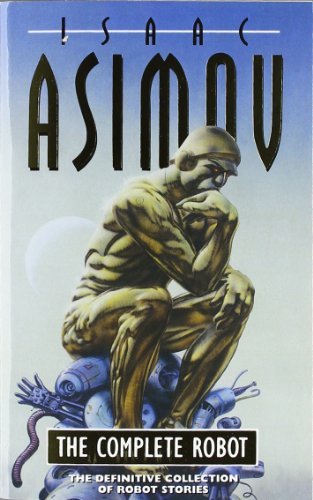 The Complete Robot, Isaac Asimov
The Complete Robot, Isaac Asimov
I’ve always liked Asimov’s work — one of my favourites has always been the expanded version of one of the short stories in this volume, The Positronic Man — and so this was a nice familiar read for me. I’ve read some of the stories, while some were less familiar, but it is a bit like comfort eating: with Asimov, I know exactly what I’m getting. It’d be a bit much to start here with Asimov, I think, and read all the short stories start to finish. I’d pick a smaller collection, rather than a collected one. But if you’re a fan of Asimov’s robot stories, then this is definitely worth picking up — there’re some in here I wasn’t really aware of.
I think what’s really great about these stories is that Asimov set up some rules, and then he bent them until they became almost meaningless within the constraints of the story. You can program a robot to never harm a human being, but if it decides you are not a human being, that rule no longer applies. Who is the judge of humanness? Or the stories where the hierarchy of rules fights against itself, with a robot trapped between compulsions. I love the way Asimov explored that. He didn’t just come up with a clever idea and then write robots you could sympathise with all the way; he liked stories that sympathised with robots, and he also saw how our society would really react to robots, and he got to work and told us stories that fit with what he saw.
I find it hard to talk about character or anything in Asimov’s stories, about not portraying women properly, etc, because I don’t think he portrays anything truly except robots. That’s what he was interested in, and that’s what he achieved. I can understand not liking them for that reason, but to me as a reader, it’s irrelevant.

Leave a Reply